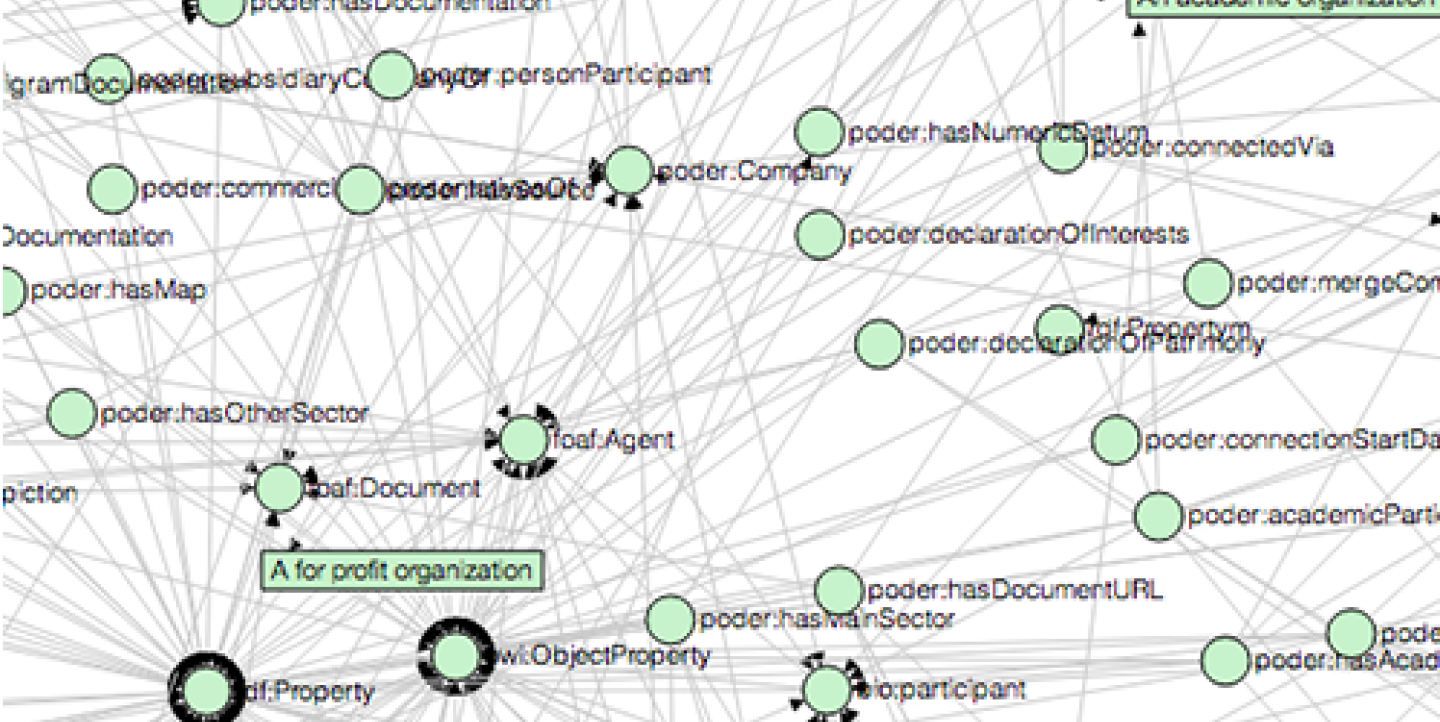In Chile, where power is concentrated in the hands of a few, an innovative data journalism project is poised to reveal links among members of the country’s elite.
But Poderopedia, a 2011 Knight News Challenge winner that will launch in private beta in the next few weeks, won’t stop at Chile’s borders. It will offer an open-source version of its tools and platform to let journalists, news organizations, nonprofits and citizens map relationships in their own communities. ("Poder" means "power" in Spanish.)
Poderopedia's team will collect and verify data from an array of sources, including news sites, public databases and information disclosed by other companies and institutions. They’ll use the Poderopedia platform to analyze and find patterns in the information, and display the results visually.
IJNet talked with Poderopedia founder and CEO Miguel Paz about the idea behind the site, and how the tool will be useful to journalists worldwide.
IJNet: Why is visualizing connections important?
Miguel Paz: Connections between people, companies and institutions are what our societies are built upon. When the political and business worlds are made of small groups of people with the same backgrounds, and there is little history of self-made men getting into those groups, you find out that the degrees of separation between members of the elite are scarce. Having the big picture of who is who in business and politics and their networks cuts information asymmetry, helps everyone make more informed decisions, makes powerful people more accountable for their actions, and promotes transparency, better democracy and a healthier business environment.
IJNet: Can you give us an example?
M.P.: In Chile, 50 percent of the CEOs and top executives come from five private schools (which represents .03 percent of the entire schooling system). Housing Minister Rodrigo Pérez Mackenna is the brother of Francisco Pérez Mackenna, CEO of Quiñenco (investment holding and #52 in the 100 billionaires Forbes list). Both of them studied at Saint George College and went to Universidad Católica, where Rodrigo was classmates with two other current [government] ministers. Francisco received his MBA at the University of Chicago in the U.S. and returned to Chile to teach at Universidad Católica and to create a consultancy company with Juan Bilbao (head of the current Bilbao group) and Alfredo Moreno Charmé (former CEO of Falabella retail group and the current Minister of Foreign Affairs). After that, he went to work at Citicorp for Chile’s current President, Sebastián Piñera, who then appointed Rodrigo as Housing Minister.
IJNet: Who will use Poderopedia?
M.P.: The user of Poderopedia visualizations is an average Internet user, someone looking to understand how people, companies and institutions interconnect with each other in order to get insight or information to help him or her understand current or past issues. He or she is a citizen, a journalist, a researcher, someone who uses technology to learn, discover or use information to do things with it (write a blog post or an article, hold an authority accountable, know who is who in an industry sector).
The user is not an expert in visualization, not an expert programmer, not somebody crazy for hairballs of millions of data strings. We have invested a lot of time and effort into making a friendly platform so anyone can use it. We see Poderopedia becoming a worldwide community and we see our source code as a tool to be used by nonprofit organizations and news organizations for different purposes. We will also provide consulting for paid installments of our Poderopedia Plug & Play platform, which will include designed interface, custom vocabularies and features as well.
IJNet: How will the display be organized?
M.P.: The display will be organized around the profiled core entity (person, company or organization) and connections will display in nodes that can vary in number and will include filters. For example, a person in Poderopedia has connections such as: Family, spouse or partner, friends, acquaintances, classmates, participation and positions in business, government positions, ties to political parties, ties to political campaign support groups, ties to think tanks, positions in international organizations, positions in NGOs, ties to religious groups, to secular groups, ties to private clubs, ties to citizens and social movements.
IJNet: What training will you offer?
M.P.: The Poderomedia School website will launch before the end of this year. We want to teach Latin American independent media, journalists, organized citizens and civic media how to develop news applications, learn computer-assisted reporting, and use open-source tools and open data for better reporting, storytelling and information projects. There is a knowledge gap between Spanish-speaking journalists who are great at what they do but don’t have technical skills that they could learn and use to improve their work. The School will also provide other training activities related to Internet, design and business, to help our foundation sustain its operations.
Photo courtesy of Poderopedia.

